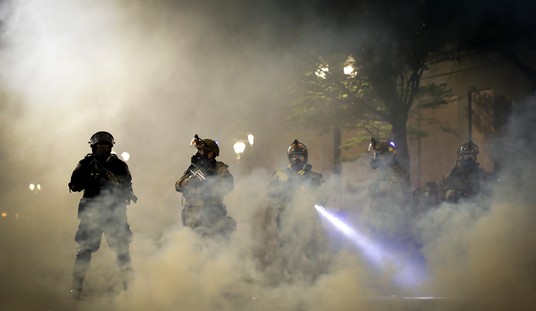Imagine it is July 28, 1965.
Hillary Rodham is lolling about the house contemplating her freshman year at Wellesley College and wondering what it would be like to roger an ex-con or an Arkansas hillbilly. She is still homely and has cankles but she, according to her self-authored hagiography, is a Rockefeller Republican. In New York, Donald Trump was fitting the female household staff with French-maid outfits while watching family lawyers work on the first of his five, FIVE, draft deferments and contemplating which of his friends to sue for their lunch money.
In Washington, DC, something deadly serious was taking place:
Late on the afternoon of July 28, 1965, Gen. Harold K. Johnson, the then-Army chief of staff, arrived outside the White House in a limousine reserved for the use of members of the Joint Chiefs of Staff. According to an account that he gave to a group of Vietnam veterans many years later, he sat in the limousine for many minutes after removing the two sets of four stars from the shoulders of his uniform. He was pondering whether he should go through with it—whether he should put the stars he held in his palm on the president’s desk. Whether he should resign his position as the Army’s senior officer.
Just hours before the general’s White House arrival, his boss, President Lyndon Johnson, had told the nation that the United States was sending 50,000 troops to Vietnam and that more would be sent as required. The announcement stunned the general, because the president had earlier made a personal pledge to the Joint Chiefs that he would commit the full power of the U.S. military for the conflict, calling up the U.S. Army Reserve and a full six combat divisions, to help wage the new war. Calling up the Army Reserve was more than just a matter of numbers; it would have sent an unmistakable signal to the American people that the United States was going to war in Vietnam—that it would “get in, win, and get out,” in the words of General Johnson’s colleague and respected Vietnam commander, Gen. Bruce Palmer. Instead, the president had committed America to an incremental, tangential and surreptitious military buildup. It was, the army chief felt, a prescription for defeat.
Remembering the incident later, General Johnson acknowledged that after many minutes of reflection he reattached the stars to his shoulders—doing what any good soldier would do. He had his orders and he would carry them out. But he regretted the decision: “I should have taken off my stars,” he later told a colleague. “I should have resigned. It was the worst, the most immoral decision I’ve ever made.”
But it was more than being a good soldier. What really caused Johnson to step back from the precipice and not resign thereby possibly changing the course of history or, at the very least, never have to regret his decision? He was convinced that if he stayed he could use his experience to make things better.
GEN Johnson is one of what H. R. McMaster, in his book Dereliction of Duty, describes as the “five silent men.” The military chiefs who acquiesced to Johnson rather than resist on principle.
Fast forward to today and you see the same calculus taking place with the GOP. Via CNN Hill GOP tries to shape Trump policy views ahead of talks this week.
House Speaker Paul Ryan and Donald Trump are moving rapidly to forge consensus around an election-year platform — as the party establishment tries to shape its presumptive nominee’s positions on a range of issues to align with bedrock GOP orthodoxy.
After their high-profile meeting in Washington last week, Ryan and Trump will dispatch their senior aides to meet privately this week to discuss policy measures — just as the House GOP is crafting an election-year agenda and as Trump plans a series of policy speeches.
How much consensus there’ll be is still an open question, as Trump and Ryan disagree sharply on major issues like trade, entitlements and immigration. But the fact that the two sides are meeting underscores the intensifying effort to promote a unified message that Republicans hope they can campaign on up-and-down the ticket. Already, Trump advisers have reached out to House committee and subcommittee chairmen to hear policy ideas, lawmakers said, something Trump supporters hope will alleviate concerns within the establishment over its presumptive nominee’s positions.
…
Whether the effort succeeds could go a long way in determining whether Trump will emerge as a different type of candidate in a general election — and if Ryan and the rest of the party establishment begin to fall in line.
This is wishful thinking.
Because of their dislike of the insurgency presented by much of the the GOP field this year, Ryan and his colleagues sat on the sidelines and let the Trump cancer metastasize. They had a chance, early, to whip state GOP organizations against Trump. They had no obligation to stay neutral. Donald Trump was not and is not a Republican anywhere but on his New York voter registration card. His values and beliefs are anathema to everything the GOP has stood for at least since 1980 and, in some cases, possibly 1860. It would have been an act of leadership and moral clarity to declare before the first primaries that Donald Trump was an unacceptable candidate.
Now the GOP leadership, both elected officials and within the RNC, are faced with a crisis. They have a presumptive nominee who, charitably, is a misogynist, a bigot, a charlatan, and a nincompoop. When was the last time a presidential nominee challenged anyone, much less the mayor of the capital city of an ally, to an IQ test cage match?
These people are reluctantly going along with a monumentally bad decision, supporting Trump, and they know they are making a bad decision but, in their hubris, they are convinced that they will change Donald Trump.
They won’t.
He will change them.
As sure as LBJ co-opted the military leadership into going along with his desires, so, too will Donald Trump co-opt all those who cooperated with him.
After defending Trump during the election season and, if he wins, through four years of a Trump presidency, they will be totally subsumed by Trump and will have to defend him and act like his ideas are anything but batsh** crazy because to deny him will be to deny themselves. They will emerge diminished and the damage done to the GOP will, like the Nixon resignation, take a generation or so to overcome. Of course, given the level of destruction likely to result from a Trump presidency, the nation may not even be worth saving at the end of it. Just like the military chiefs owned the disaster they had acquiesced to, just like Marshal Petain was sentenced to death for collaborating with the Nazis for what he believed was saving France, the GOP leadership that goes along with Trump in the misguided belief that they can change him will ultimately bear the ignominy of their lack of moral courage and political will.















Join the conversation as a VIP Member